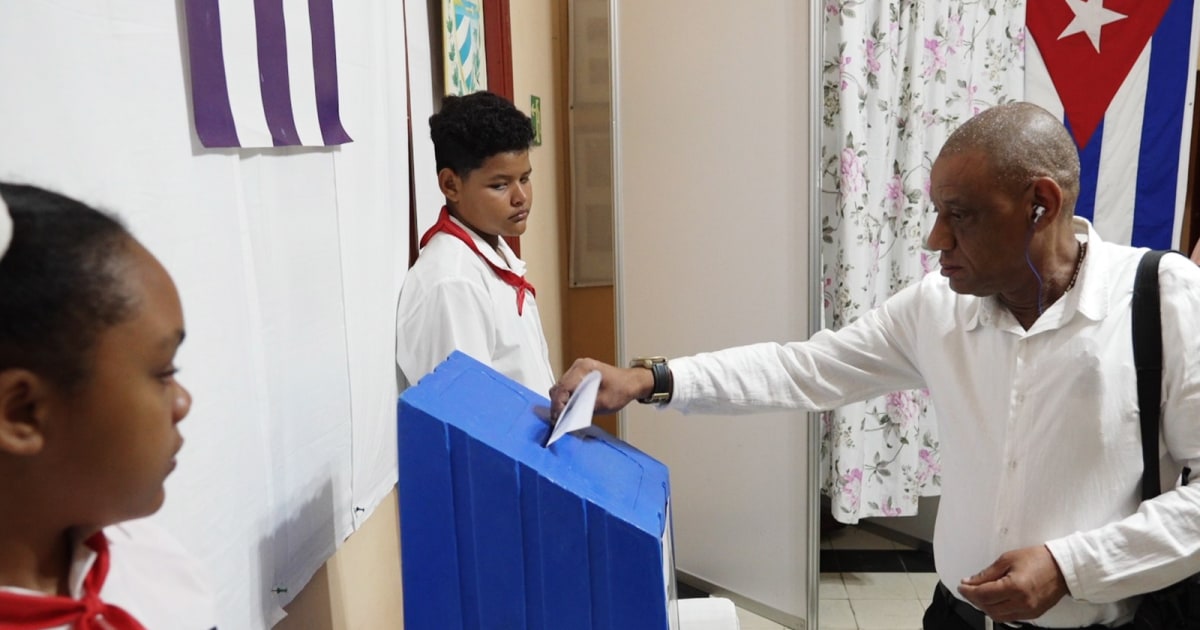HAVANA — Cuban government officials say more than 75% of eligible voters voted Sunday in the legislative elections, despite expectations of lower voter turnout amid growing discontent on the island over economic hardship.
The participation rate is largely used as an indicator of support for the communist government, which is why in recent months Cubans have seen an extensive campaign on television, social networks and schools to get out the vote, promoting a » unity vote» for the National Assembly. candidates.
Meanwhile, opposition groups in Cuba and abroad have urged people to abstain from voting, saying there are no opposition candidates and casting a ballot would have no impact on people’s lives.
The government said Cubans voted to support 470 people running for 470 seats, including candidates chosen in local elections and others representing groups such as unions. All the candidates were vetted by Communist Party officials and there were no opposition candidates.
The National Assembly votes for the president, the prime minister and passes laws backed by the Communist Party. President Miguel Díaz-Canel is expected to be re-elected on April 19.
Dairis Fontes Díaz, 32, who works in the tourism industry, was one of those who voted.
“I vote for the revolution because these elections are very important for our electoral system,” he said. “We choose candidates from the base of our society and they are the best people our neighborhoods have to represent the population.”
Lázaro Fernández, 40, did not vote in Sunday’s elections.
“I don’t think these elections are of much interest to anyone,” said Fernández, while fishing on Havana’s famous boardwalk. “They mean nothing to me. Is the same. They go to the Assembly and what? No problem.»
“I’m here to see if I catch a fish, which is what will help my situation,” he said.
Voter turnout had declined in previous elections and was expected to decline further on Sunday as complaints grew over Cuba’s economic crisis.
In recent years, there has been growing frustration on the island as people grapple with inflation and shortages of food, medicine and electricity. The effects of the pandemic on the tourism industry, the tightening of US sanctions and Cuba’s economic model have made daily life daunting for most Cubans. The situation contributed to island-wide protests in 2021 and a historic wave of migration.
Approximately 68% of eligible voters participated in the municipal elections last November. While the rate is high by international standards, it is not for Cuba, where voting is considered a national duty. Candidates for government typically get a «yes» vote of well over 90%.
Cuba does not allow independent international observers to monitor the elections.
The US embassy in Havana described Sunday’s elections as «undemocratic» in a tweetwriting, «the Cuban people deserve real options in real elections that present candidates from more than a single party and beyond the Communist Party.»
Brian Nichols, US Assistant Secretary for Western Hemisphere Affairs, tweeted that «when the only option is the Communist Party and closed committees choose candidates to run without opposition, there is no democracy, only autocracy and misery.»
But the government says its electoral system is inclusive and steers clear of campaigning and big money donations.
Cuban President Miguel Díaz Canel tweeted a photo of himself voting on Monday and wrote in Spanish: «Since yesterday we said it: we trust our people, who came out and defended the Revolution.»
And he continued: «Despite the draconian measures of the United States, despite the fierce campaign and the calls for absenteeism, #CubaWon.» (which translates as #CubaWon).
Members of the legislature include Elián González, who was just 5 years old when he became the focus of a high-profile international custody battle. González was rescued by a fisherman in November 1999 after his mother and others drowned trying to reach the US His relatives in Miami wanted to keep him in the US, but they eventually returned him to his father in Cuba.
Mariela Castro, an LGBTQ advocate and daughter of the late former leader Raúl Castro, is also a legislator.
NBC News producer Orlando Matos reported from Havana and Carmen Sesin from Miami.

